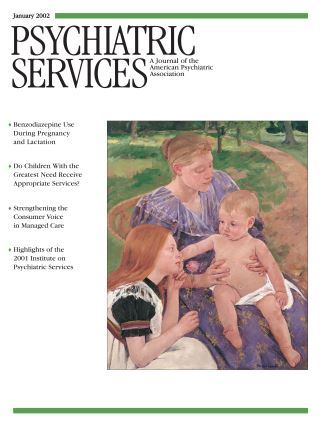In Reply: Dr. Pawel's comments on our column raise concerns that would be appropriate to an inquiry of an entire system of care rather than a circumscribed single element within a system of care, such as inpatient psychiatric hospitalization. It should be pointed out that the Illinois Office of Mental Health did not eliminate public inpatient psychiatric services. Rather, it eliminated the direct provision of such services by state employees in the Chicago metropolitan area. The number of children and adolescents receiving publicly funded and monitored inpatient psychiatric services has grown. These recipients are identical to those who were previously admitted to the state hospital in that they are subject to the same community-based prescreening processes that evaluate both clinical and financial eligibility. The Illinois Department of Children and Family Services has assumed responsibility for the clinical mental health care of wards of the state. Through similar contracts with hospitals and residential treatment centers, the needs of the small number of these youths who were previously treated at the state hospital have been met.
Dr. Pawel cites several potential outcomes of interest—whether some of the patients in our study were incarcerated after a brief acute hospitalization, whether they are successfully attending school, and whether some have died. These important outcomes would be more reflective of the availability and quality of outpatient community-based services, the very services to which cost savings derived from privatization were directed. More than $2 million of annual savings were invested in community-based services that were directly linked to continuity-of-care agencies for hospitalized children and adolescents.
Dr. Pawel's comments on the use of residential treatment in New York City are instructive. It may be that long-term care has an impact on whether a child or adolescent is later incarcerated. However, there will always be political considerations in determining the availability of resources to support such services. We stand by our data indicating that the privatization of psychiatric hospitalization in the Chicago area has maintained a full array of appropriate psychiatric services and enhanced the capacity of community-based services at a time when other resources were not available.
Finally, Dr. Pawel's charge that the New York Office of Mental Health has actively suppressed data that would somehow address the issues he has identified is untrue. The results from the planning study that Dr. Lyons managed have been widely disseminated in forums throughout the state, and these data are now being prepared for submission to peer-reviewed journals. Contrary to Dr. Pawel's claims, the study in question was used to guide the investment of an additional $42 million in new money for children's services in the state of New York.

